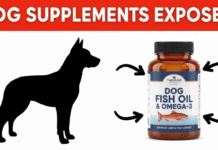Last Updated on September 27, 2024 by Dogs Vets
Pet Insurance in Canada: Is It Worth It?
Pet insurance has gained attention in Canada as a way to protect yourself from high veterinary bills. But is it really worth the investment? The answer depends on factors like your pet’s health, the cost of premiums, and your financial ability to handle emergencies.
Is Pet Insurance in Canada Worth It?
In general, insurance is most valuable when it covers unlikely but financially catastrophic events. Pet emergencies often don’t fall into this category, making pet insurance less appealing for some. A typical pet owner might find paying out-of-pocket more manageable, especially for routine care. However, if your pet faces significant health risks or you want peace of mind, pet insurance could be a valuable safety net.
Why Is Pet Insurance So Expensive in Canada?
The cost of pet insurance varies, but the average monthly premium in Canada is around $39 for dogs and $29 for cats. This might seem affordable, but premiums can increase with factors like your pet’s age, breed, and health history. Older pets are more likely to develop health issues, making them more expensive to insure.
Does Pet Insurance Really Pay Off?
According to a survey by PC Financial, only about 4.6% of Canadians insure their pets. Not all policies offer the same coverage, and some insurers may raise premiums as your pet ages. Policies may also include exclusions or limits on what’s covered, so it’s essential to read the fine print before purchasing. Make sure you’re aware of possible claim denials due to pre-existing conditions or policy limitations.
What Does Pet Insurance Cover?
Pet insurance plans typically cover accidents, illnesses, and sometimes preventive care, depending on the policy. Accident-only policies will cover treatments resulting from injuries like fractures or ingestion of harmful objects. Accident and illness plans are broader, covering everything from routine illnesses to major diseases like cancer. Some insurers also offer wellness riders, which include coverage for preventive care such as vaccinations and annual checkups.
Real Story: Is Pet Insurance Worth It for College Students?
One Canadian college student shared their experience on Reddit, debating whether to invest in pet insurance after their dog experienced a minor illness. They considered paying around $50 a month for insurance, which could cover up to $5,000 per year for medical emergencies. For students or those with tight budgets, this peace of mind might be worth the monthly cost. However, they also recognized that if their pet stayed healthy, the premiums could feel like wasted money.
How Does Pet Insurance Work?
Pet insurance works by requiring you to pay a monthly premium to cover potential future veterinary bills. When your pet needs medical care, you submit the vet bills to the insurance company, which reimburses you for a percentage of the costs, depending on your policy. Most plans also include an annual deductible, which is the amount you must pay out of pocket before coverage kicks in.
Top 6 Pet Insurance Providers in Canada
- Pet Assure: Known for its flexibility, Pet Assure covers nearly all treatments for accidents, illnesses, and preventive care, including pre-existing conditions, which many standard insurance policies exclude.
- PetFirst: Offers the best value for routine care, reimbursing costs for vaccinations, preventive exams, and more.
- GEICO: Known for discounts, GEICO offers reduced premiums for multiple pets, prepaying, and spaying/neutering.
- Embrace: Provides the best coverage for emergency situations, with benefits starting just two days after enrollment.
- 24PetWatch: They are prominent pet insurance provider offering a range of coverage options for pet owners. Known for its flexible insurance plans, 24PetWatch covers accidents, illnesses, diagnostic tests, surgeries, and even prescription medications. They also offer additional services such as microchipping and lost-pet recovery, making it a comprehensive solution for pet care. With customizable plans, 24PetWatch allows pet owners to select different levels of coverage and deductibles, ensuring they can find a policy that fits their budget and pet’s needs. Their coverage extends to both dogs and cats, providing peace of mind to pet owners facing unexpected veterinary expenses.
- Healthy Paws Pet Insurance: is a leading provider known for its straightforward, comprehensive coverage that includes accidents, illnesses, surgeries, hospitalizations, and prescription medications. With no caps on payouts, Healthy Paws ensures that pet owners can focus on their pets’ well-being without worrying about financial limits. The company also offers quick claim reimbursements, making the process hassle-free. Healthy Paws’ commitment to helping pets in need is evident through its foundation, which donates to animal rescues and shelters, further setting them apart as a compassionate choice for pet insurance. We are just getting started and are trying to help even more homeless pets get well and adopted in the years to come. We believe it all showed when our customers ranked us as the best pet insurance company in 2017, 2018, and 2019 on Consumersadvocate.org, PetInsuranceQuotes.com, CanineJournal.com, and other leading review sites.
We are very grateful and humbled by this rating and will continue to earn the trust of our customers every day by providing exceptional service.
Our review of Pet Assure has revealed that because insurance regulation limitations do not constrain the company, it can offer more flexible plans that are most likely not subject to annual coverage limits, deductibles, or waiting periods.
We chose 24PetWatch as the best policy for chronic health conditions cover for your pet because the insurer offers high limits and is willing to forgive certain pre-existing conditions after 24 months without symptoms.
FAQs
1. How much does pet insurance cost in Canada?
The cost varies based on factors like the pet’s age, breed, and health. On average, it’s about $39 a month for dogs and $29 for cats.
2. Does pet insurance cover pre-existing conditions?
Most pet insurance plans do not cover pre-existing conditions, but some companies, like Pet Assure, do offer coverage for pets with existing health issues.
3. What is the waiting period for pet insurance to take effect?
The waiting period depends on the insurer. For accidents, it can be as short as two days, while illness coverage may take longer.
4. Can I lower my pet insurance premiums?
Yes, you can lower premiums by choosing a higher deductible or reducing the annual coverage limit. Some insurers also offer discounts for multiple pets or if you pay the full year’s premium upfront.
5. Is preventive care covered by pet insurance?
Preventive care, such as vaccinations and annual checkups, is typically not covered unless you purchase a wellness rider, which adds to your monthly premium.
6. But does pet insurance really pay off?
According to a survey by PC Financial, only 4.6% of Canadians insure their pets. Before committing to a policy, it’s important to understand that not all insurance providers and policies are created equally. For instance, some providers may raise your monthly premiums as your pet ages.
Additionally, there can be exclusions and limitations that you should be aware of. Consumer Reports article highlights key factors to consider before purchasing pet insurance, such as carefully reviewing the fine print to avoid unexpected claim denials.
Fact Check
We strive to provide the latest valuable information for pet lovers with accuracy and fairness. If you would like to add to this post or advertise with us, don’t hesitate to reach us. If you see something that doesn’t look right, contact us!

















